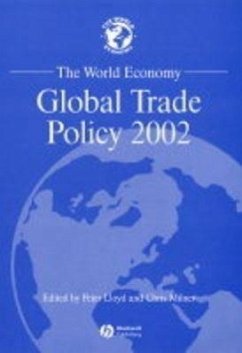
Quantitative Marxism
Versandkostenfrei!
Versandfertig in über 4 Wochen
89,99 €
inkl. MwSt.

PAYBACK Punkte
45 °P sammeln!
This book seeks to establish a constructive and useful interaction between empirical data and research methods, on the one hand, and Marxist theory and analysis, on the other. It shows that it is possible to operationalise Marxist concepts either by using orthodox data and reinterpreting it, or by constructing data which are more congruent with Marxist notions. The contributions deal with a wide range of theoretical, methodological and policy-related issues. Among the substantive issues discussed are unemployment and structural change, uneven development and industrial restructuring, and the f...
This book seeks to establish a constructive and useful interaction between empirical data and research methods, on the one hand, and Marxist theory and analysis, on the other. It shows that it is possible to operationalise Marxist concepts either by using orthodox data and reinterpreting it, or by constructing data which are more congruent with Marxist notions. The contributions deal with a wide range of theoretical, methodological and policy-related issues. Among the substantive issues discussed are unemployment and structural change, uneven development and industrial restructuring, and the financial sector. Quantitative Marxism will be of interest to students and academics in economics and political economy, as well as to a broader audience interested in contemporary social and economic policy.












